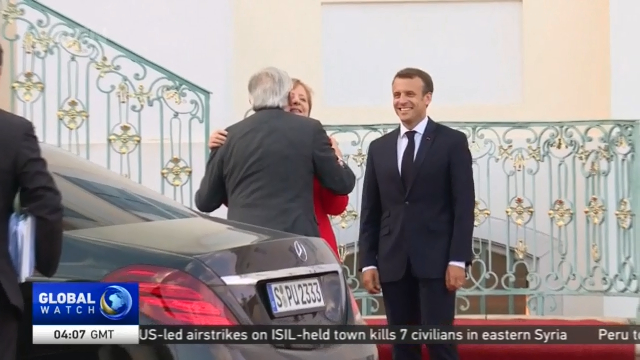
12:48, 23-Jun-2018
EU Immigration Crisis: Leaders to discuss solution at summit in Brussels next week
02:34

We start with the European immigration crisis. Hundreds of thousands of people have crossed into Europe over the past four years. An estimated fourteen thousand are said to have died while attempting to make the journey. But disagreement is spreading across the continent in regard to how to handle refugees and migrants. EU leaders will be looking for answers at a summit in Brussels next week. CGTN's Ma Ke has the story.
"Italy won't be the doormat of Europe."
"Italy only helps Italians."
These remarks are from newly-elected Italian Interior Minister Matteo Salvini. He declined two more rescue ships from entering the country last week, the second time in a month this hard-line populist politician has given the cold shoulder to refugees and migrants. And he's not the only European politician determined to do that.
Leaders of the Visegrad Group, formed by Poland, Czech Republic, Hungary and Slovakia, have decided they will not be attending an EU mini-summit. The Hungarian legislature passed a package of laws on Wednesday to bring in a punishment of up to a year in prison for anyone convicted of helping a person who enters the country illegally. It also passed a finance bill on Tuesday slapping a 25-percent tax on NGOs suspected of helping migrants.
Leaders of the group said the solidarity of their religion and people will not be sacrificed for outsiders, a consistent stance they have been taking since the crisis started in 2015.
Other leaders are still weighing in, however. German Chancellor Angela Merkel announced on Monday that Germany will not open its borders for those who already registered for asylum elsewhere, a tuned-down version of Interior Minister Seehofer's strong request to block most asylum-seekers altogether.
She will meet with other European leaders in Brussels, and will try to provide a solution to impatient party members and the German people at home.
Merkel's French ally Emmanuel Macron suggested a milder way out of this situation during a meeting with Italian Prime Minister Conte. The two agreed that the EU should build refugee processing camps in Africa, to keep the problem on the other side of the Mediterranean.
The ongoing crisis has worn out Europe's hospitable stance. And for the upcoming summit to have any real outcome or solution, Europe's plans will have to strike a balance between humanitarian aid, and the bloc's growing debts. CGTN, Ma Ke.

SITEMAP
Copyright © 2018 CGTN. Beijing ICP prepared NO.16065310-3
Copyright © 2018 CGTN. Beijing ICP prepared NO.16065310-3